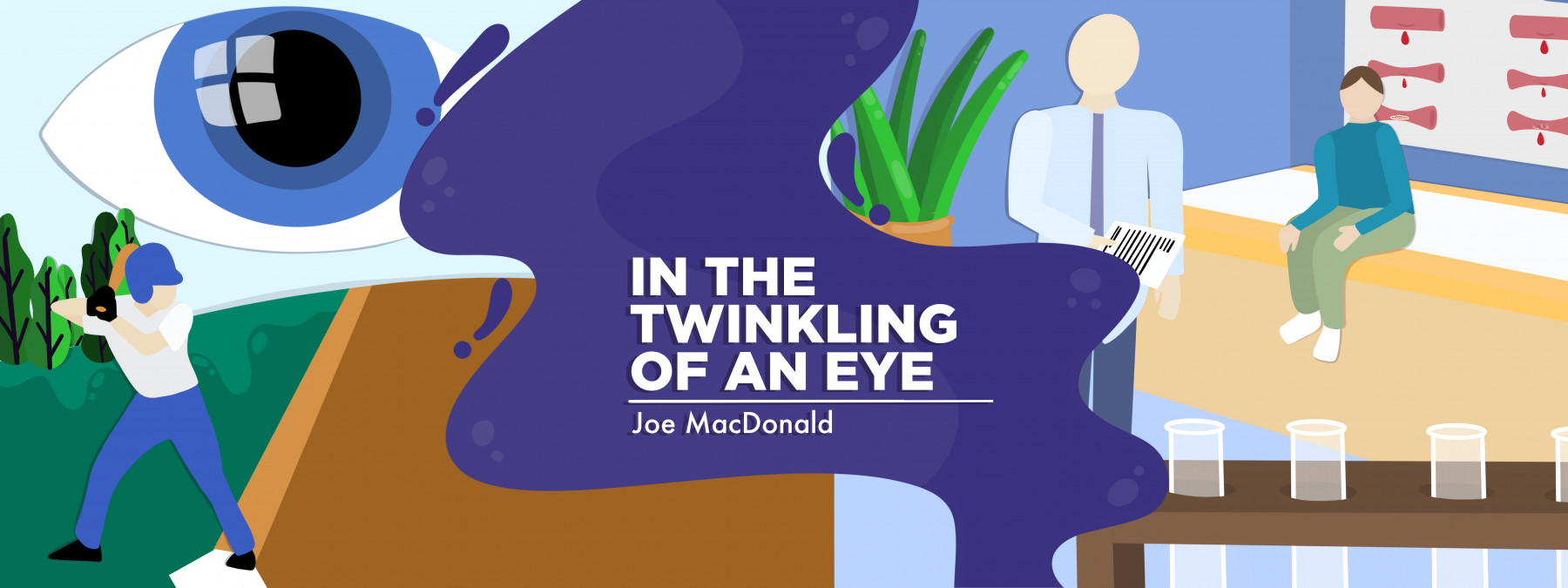How becoming an empty nester will change my role as a caregiver
As my sons with hemophilia grow up, they must become their own advocates

Almost 27 years ago, I received the title of caregiver when my first son, Julian, was born. Not realizing that my role in his life would change over the years with his hemophilia, I gladly performed my duty and helped him navigate the waters of medical care.
Ten years after Julian’s birth, Caeleb entered the world. He also had hemophilia, so with him I was also father and caregiver. The boys’ treatment and compliance became major talking points in my home.
When Julian moved out to live in a dormitory, my life seemed not to skip a beat. I still wore my title of caregiver with pride, as Caeleb faced one crisis after another because of his bleeding disorder. Even though my sons share a hemophilia diagnosis, Julian hadn’t faced the same issues, and the stark contrast between the boys’ health proved challenging to manage.
Although my wife and I understood the fundamental nature of the disease, treating two such distinct people came as a shock to us. I often wondered how both boys could be diagnosed with the same disease type and severity, yet have the disorder manifest in such different ways.
Shifting my caregiving focus
Focusing my attention on my youngest son’s medical issues helped me forget any separation anxieties when Julian moved to his school in Santa Fe, New Mexico. I felt sure he could handle himself medically, as we’d taught him everything he needed to know. It also helped that his new residence was a mere 45-minute drive from our home. I thought little about how my role as his caregiver would change as we said goodbye.
I turned my attention back to Caeleb, who continued to face complications related to internal bleeding episodes in his right knee and ankle. The issues he faced overwhelmed my family, as nothing seemed to help him. He’d stay in the hospital for at least two weeks, get discharged, and soon return to the sixth floor of the University of New Mexico Hospital, where the special pediatric unit was located. Most of 2013 was a blur, as we spent more time in inpatient care than in our comfortable beds at home.
The year 2014 proved to be better for the MacDonald family, as our medical team found a treatment that stopped Caeleb’s constant internal bleeding episodes, allowing him to return to school and in-class instruction. Further developments in medical treatment offered easier ways to administer clotting medicines. Gone were the days of accessing a vein or a port with a long needle. His new medication, Hemlibra (emicizumab-KXWH), required a simple subcutaneous injection.
The caregiver in me shouted for joy that his medical needs had become easier to manage. The stress of finding a vein to get the vital medicine into my son’s body was difficult for both Caeleb and me. Our relationship as caregiver and son changed as we relaxed into this new means of treatment. I remained active in his care but allowed my past anxiety to take a back seat.
Preparing for empty nesting
With Caeleb graduating from high school in less than two months, I realize something: Soon my role of caregiver, as I’ve known it, will end. My relationship with my youngest son will change as he takes over his hemophilia care. I think of Julian, and it seems that life got so complicated that I didn’t take a step back to acknowledge how our relationship changed as he entered adulthood.
With a hint of sadness, I say goodbye to a relationship with my sons that served us well when they were younger. Now we’ll form new ways of being in the world as they take control of their treatment and become their own advocates.
I hope they listened every time we discussed how to advocate for themselves. I realize that the most challenging part of being a caregiver to my sons is getting them to a point where I can let them go. I did my job so well that now they sit in the driver’s seat regarding their care. My role in their lives has changed, but my love for them only grows stronger.
As I get closer to becoming an empty nester, I celebrate how we as a family managed hemophilia. Through the most difficult times, we found ways to connect with and support one another. While my role is changing, I’ll never stop advocating for new and better ways of living with a chronic bleeding disorder.
Note: Hemophilia News Today is strictly a news and information website about the disease. It does not provide medical advice, diagnosis, or treatment. This content is not intended to be a substitute for professional medical advice, diagnosis, or treatment. Always seek the advice of your physician or another qualified health provider with any questions you may have regarding a medical condition. Never disregard professional medical advice or delay in seeking it because of something you have read on this website. The opinions expressed in this column are not those of Hemophilia News Today or its parent company, Bionews, and are intended to spark discussion about issues pertaining to hemophilia.






Joe
Good article!